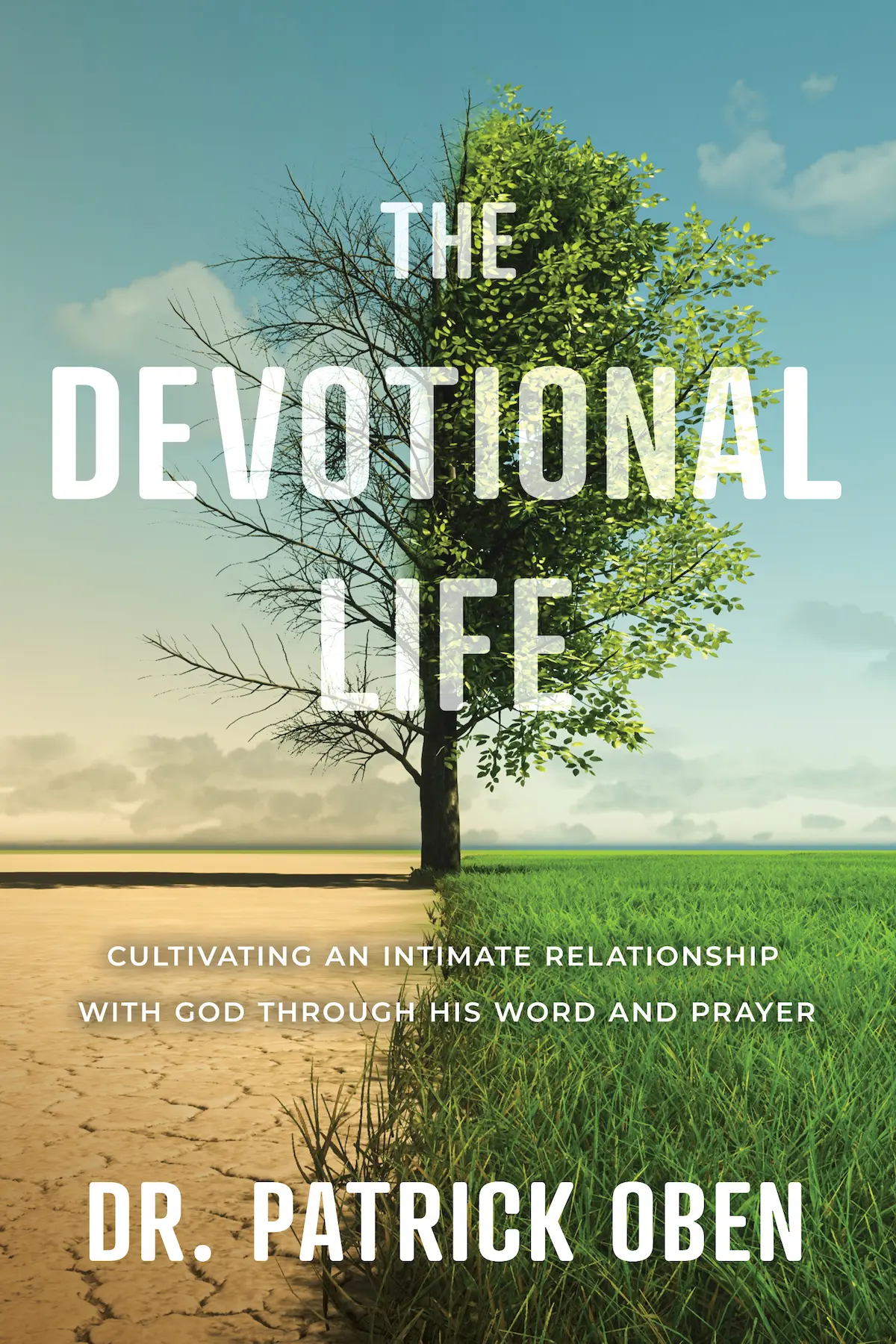One of our website visitors once shared a burden in her heart with me. She wanted to write daily devotionals, but she was concerned that daily devotionals were not biblical. Our sister is not alone in this concern with the increasingly popular Christian tradition of publishing and consuming daily devotionals.
Although the practice of writing or reading devotionals is not in the Bible, this practice is simply a modern format of the established biblical principle of teaching, preaching, and spreading God’s words. This article will address the underlying concern of believers who question devotionals and make a biblical case for it.
Usage and Meaning
It is important to define or clarify our terms. What do we mean by devotional and biblical in this context?
Devotional
Christians typically use the term devotional to mean two different things. Dictionaries add a third meaning. First, the devotional refers to quiet time with God through prayer and Bible reading. This meaning is not our primary concern here.
Second, a devotional means a piece of Christian writing (or audiovisual content) often published daily. This is the meaning of the devotional that we use throughout this article. Third, a devotional refers to religious service. Again, this is not our focus here. To learn more about the devotional, including the three meanings of the term today, please read “What is a Devotional?”
Biblical
What do we mean by biblical in the context of a devotional? There are at least two critical things Christians mean by the Word biblical. First, by biblical, they mean the devotional as a documented historical practice in the Bible. Did God’s people write, publish, or read daily devotionals? If this is the meaning of biblical, then the devotional is not biblical: it is not a practice documented in the scriptures. It was not known or at least used during Bible days.
Second, the term biblical refers to whether a practice harmonizes with the Truth of the Bible. Is writing and reading devotionals aligned with what the Bible teaches or commands? The answer to this question is straightforward: Yes, the devotional agrees with the principles and practices of the Bible.
Biblical or Unbiblical?
An important principle of Bible study is applying biblical truth to contemporary situations. A practice must not be documented in the Bible to be biblical. As time evolves, cultures change and the practices associated with them. While cultures change, the truth of the Bible is unchanging. The principle of biblical application helps us apply God’s unchanging truth to the changing cultures.
Examples
For example, Jesus spoke Aramaic, and the Apostles wrote the New Testament in Greek. How odd will it be for someone to think that preaching or writing the truth of the Bible in English is unbiblical because English was not the language of the Biblical writers? God’s Truth transcends human language.
Or imagine someone saying recording video sermons or live-streaming Church services is unbiblical because the Biblical authors did not use it. It is easy to discard such an argument, but the same is true about the devotional. Although the Truth of the Scriptures is unchanging, the delivery format changes from generation to generation and from culture to culture.
Why the Devotional is Biblical
Publishing devotionals is biblical not because the practice was used in Biblical times but because it is simply a modern format of a well-established biblical principle or commandment. God uses His people to explain, teach, or preach His Word to His people.
Illustrations
In Bible days, Paul trekked hundreds of miles to preach to different cities; whenever he could not travel to a Church, he wrote letters. But when he was present, he met with the believers for an in-person congregational service. Would Paul live-stream to teach the Word if he lived in our day?
Is it biblical for preachers to use a microphone to amplify their voices? Neither Jesus nor the Apostles used it—they did not have that luxury. How strange it would be to think that using technology to spread the Gospel is unbiblical because neither Jesus nor the Apostles used it—again, they did not have that privilege God has given this generation.
The Word Taught or Preached
A devotional is simply a written or audiovisual mini-sermon. It is not a typical entire sermon, in writing or speech. Its peculiarity is in its brevity.
It is written to meet a specific need in our fast-paced, drive-through generation: tiny portions of the Word for rapid consumption. When I write devotionals, I preach and teach, just as I would in a Church service or conference, except that I have it in writing and small parts. The devotional is a handy tool to exhort believers daily:
“But exhort one another daily, while it is called To day; lest any of you be hardened through the deceitfulness of sin.” (Hebrews 3:13, KJV)
The Concerns
The devotional, in essence, is preaching and teaching the scriptures. If we should be concerned about devotionals, it is not whether they are biblical but whether they are appropriately used.
Devotionals Gone Wrong
Those concerned about devotionals have a valid reason: it is pretty easy to misuse them, either by the writer or the reader.
Writers or Authors
Authors of devotionals are sharing their understanding of the Bible. Devotionals are a form of Bible commentaries; We hope that their authors strive to comment on the meaning and application of the Bible accurately. Like commentaries, devotionals can misinterpret the verse, and readers often receive devotionals like the Bible.
Beyond misinterpretations, some devotionals could be unbiblical because they are not the Bible — non-biblical. Devotional writers can easily use the vehicles of devotionals to share ideas or teachings that are not from the Bible. They might inspire readers, but they are not God’s words. Again, believers who read these receive them as the Bible and are unaware they are consuming ideas not coming from God, a dangerous practice we must genuinely be concerned about.
Readers or listeners
Readers are more susceptible to the potential problems of devotionals than writers. I cannot think of any concern more disturbing than the fact that some Christians today read their daily devotionals faithfully every day without reading their Bibles: their daily devotionals have become their Bible. Irrespective of whether those devotionals are biblically sound, doing so is a systematic and subtle way of replacing the Bible.
If the Bible is not replaced, personal time with God is the next culprit. Some believers now think reading their favorite devotional is the same as having a devotional with God. For them, the devotional life is being consistent with reading daily devotionals. The problems only continue to get worse.
Some readers are just overwhelmed by many devotionals. Here, daily devotionals become an obstacle to having devotionals with the Lord. They distract, overwhelm readers, and sometimes confuse some with conflicting ideas.
Last but not the least, some readers never grow beyond devotionals. There is more to Bible study than devotionals, and there are greater forms of prayer than the devotional prayer. The devotional is only one important part of our Christian lives, not all.
Despite these potential pitfalls from writers or readers, the daily devotional is still a superb tool in the right hands to stimulate spiritual growth, provide guidance, encourage the discouraged, or even strengthen the downcast.
Conclusion
So the practice of writing and reading devotionals is not documented within the scriptures. It was just not something people in Bible days practiced. However, the devotional is biblical as it is a well-established Biblical practice in a modern format. If misused by writers and readers, the devotional can create more problems than solve them, but in the right hands, a devotional is an excellent tool to teach or preach the scriptures or to receive the Word through the ministers God has put on our path.
We would love to hear from you. What problems have you experienced with daily devotionals, and how did you overcome them? Have daily devotionals blessed you? If so, which one, and in what way? Please leave your comments below.
Recommended
- What The Devotional Life Is Not
- Three Things to Do During Your Devotional Time
- What is the Purpose of a Devotional?
- What is a Devotional?
- View All Devotional
Free Mini E-book: From Spiritual Dryness to Flourishing








